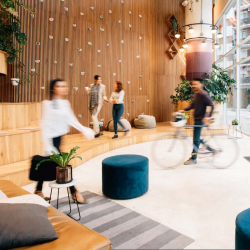To provide the best experiences, we use technologies like cookies to store and/or access device information. Consenting to these technologies will allow us to process data such as browsing behaviour or unique IDs on this site. Not consenting or withdrawing consent, may adversely affect certain features and functions.
The technical storage or access is strictly necessary for the legitimate purpose of enabling the use of a specific service explicitly requested by the subscriber or user, or for the sole purpose of carrying out the transmission of a communication over an electronic communications network.
The technical storage or access is necessary for the legitimate purpose of storing preferences that are not requested by the subscriber or user.
The technical storage or access that is used exclusively for statistical purposes.
The technical storage or access that is used exclusively for anonymous statistical purposes. Without a subpoena, voluntary compliance on the part of your Internet Service Provider, or additional records from a third party, information stored or retrieved for this purpose alone cannot usually be used to identify you.
The technical storage or access is required to create user profiles to send advertising, or to track the user on a website or across several websites for similar marketing purposes.
 The majority of workers would expect a four-day week to consist of longer working hours with one in seven stating that up to 10 hours per day would be reasonable. According to a new poll from Talent.com among 1,325 respondents, workers believe that a shortened working week would enable them to achieve better wellbeing and mental health. (more…)
The majority of workers would expect a four-day week to consist of longer working hours with one in seven stating that up to 10 hours per day would be reasonable. According to a new poll from Talent.com among 1,325 respondents, workers believe that a shortened working week would enable them to achieve better wellbeing and mental health. (more…)




































October 5, 2022
Will employees return to the office to save on energy bills this winter?
by Nick Gold • Comment, Flexible working